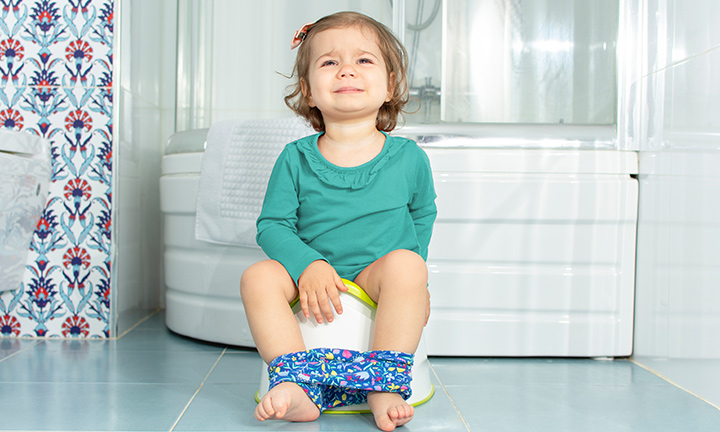How to Treat Toddler Diarrhea: Causes & Tips

Learn causes, symptoms & caring tips for toddler diarrhea. Soothe discomfort, promote hydration & ensure your child’s well-being with our parenting guide.
Understanding Diarrhea in Toddlers: Causes, Symptoms, and Treatment

Have you ever wondered what to do when your toddler has diarrhea? It’s a common concern for parents. Just imagine how uncomfortable your little one feels with those frequent, watery poops. In this blog, we’ll explain the causes and how to help in simple terms so you can care for your child’s health.
Diarrhea in Toddlers:
Diarrhea in toddlers is a common gastrointestinal issue with frequent, loose, and watery bowel movements. Understanding its causes, symptoms, and treatment is essential to ensure your toddler’s well-being.
Causes of Diarrhea in Toddlers:
Various factors can cause diarrhea, such as:
- Infections:
Bacterial, viral, or parasitic infections can irritate the intestines, leading to diarrhea. Imagine your toddler’s discomfort as their tummy churns due to an illness. - Food Poisoning:
Consuming contaminated or spoiled food or water can trigger diarrhea. Your toddler may show signs of discomfort or distress after consuming such food. - Dietary Factors:
Certain dietary habits like high caffeine or artificial sweeteners can cause diarrhea. Your toddler’s tummy might gurgle or rumble after consuming these substances. - Medications:
Disrupting the balance of gut bacteria, especially with antibiotics, can cause diarrhea as a side effect of some medications. Your toddler may feel uneasy or complain about an upset stomach.
- Food Allergies or Intolerances:
Some toddlers may experience diarrhea when consuming foods they are intolerant to, such as lactose or gluten. If this happens, you may hear signs of discomfort or distress in your toddler’s voice.
Symptoms of Diarrhea in Toddlers:
- Imagine hearing the urgency and frequency of your toddler’s bowel movements, which may result in loose and watery stool. You may listen to them rushing to the toilet, and their discomfort might be evident in their voice as they urgently communicate their need to go.
- Your toddler might complain of abdominal pain or discomfort, which you can hear in their tone. They may also show irritability as they cope with the discomfort associated with diarrhea.
Treatment for Diarrhea in Toddlers:
- During episodes of diarrhea, it’s crucial to keep your toddler hydrated. Provide soothing sounds by offering fluids like water, rice water, tender coconut water, and oral rehydration salts (ORS) to prevent dehydration. Imagine their relief as they sip on these soothing liquids.
- Encourage your toddler to continue eating a bland, easily digestible diet. Avoid high-fat, spicy, or dairy-rich foods that can exacerbate diarrhea. You can use a reassuring tone to guide their dietary choices.
- Preventing the spread of infections that cause diarrhea requires good hygiene habits. It’s essential to practice these habits consistently. Frequent handwashing is vital for both you and your toddler.
- If you have diarrhea for over a few days or experience severe symptoms like high fever, blood in stool, or signs of dehydration such as dry mouth, sunken eyes, and decreased urination, promptly seek medical attention. The concerned tone in your voice will convey the urgency of the situation.
Conclusion:
Remember, diarrhea in toddlers is usually temporary, and proper care and hydration often resolve independently. However, as a parent, always trust your instincts. If you have concerns about your toddler’s health or the severity of their symptoms, don’t hesitate to consult a healthcare provider. Your soothing and caring presence can help your toddler cope with the discomfort of diarrhea and recover more quickly.






